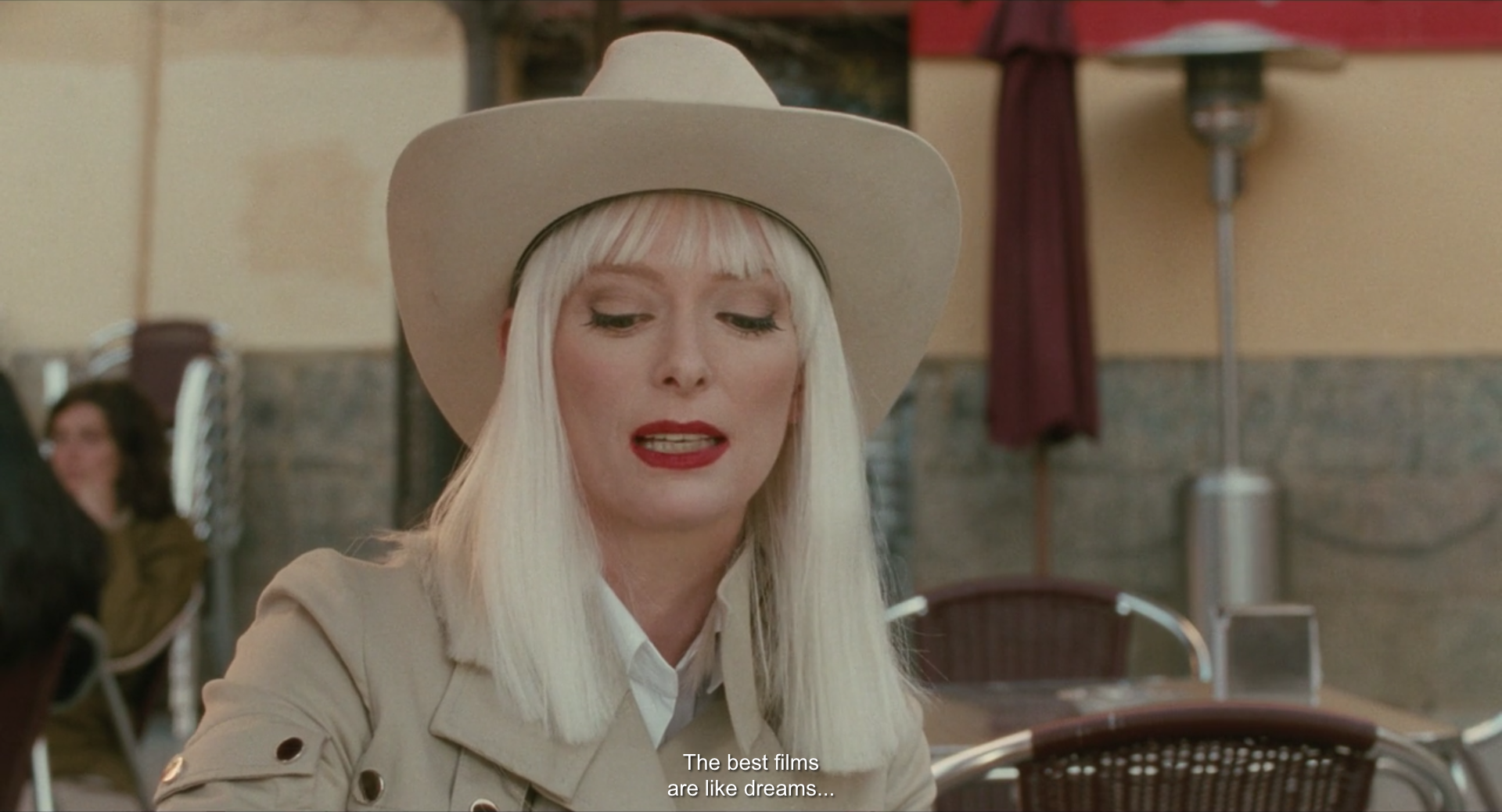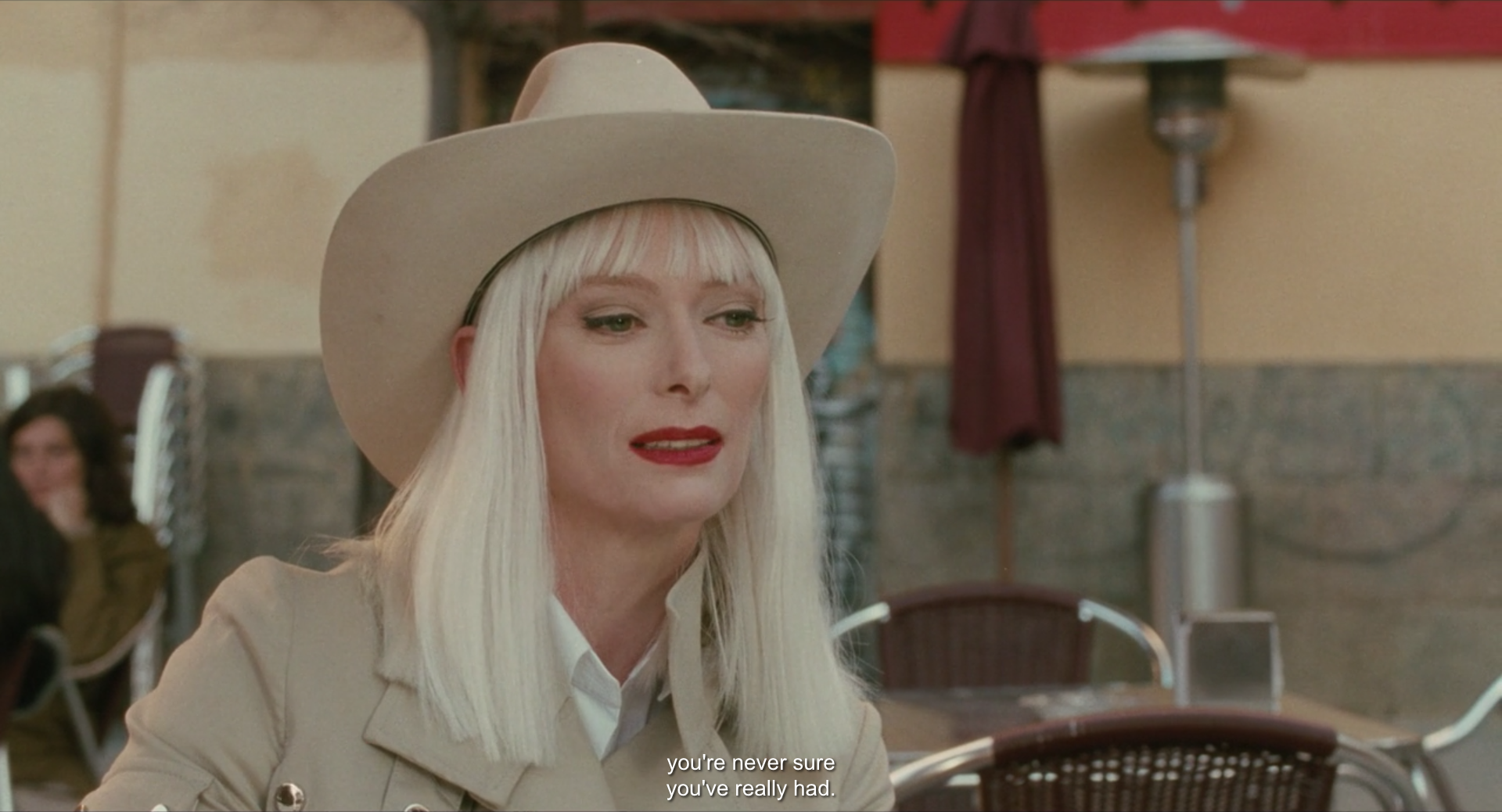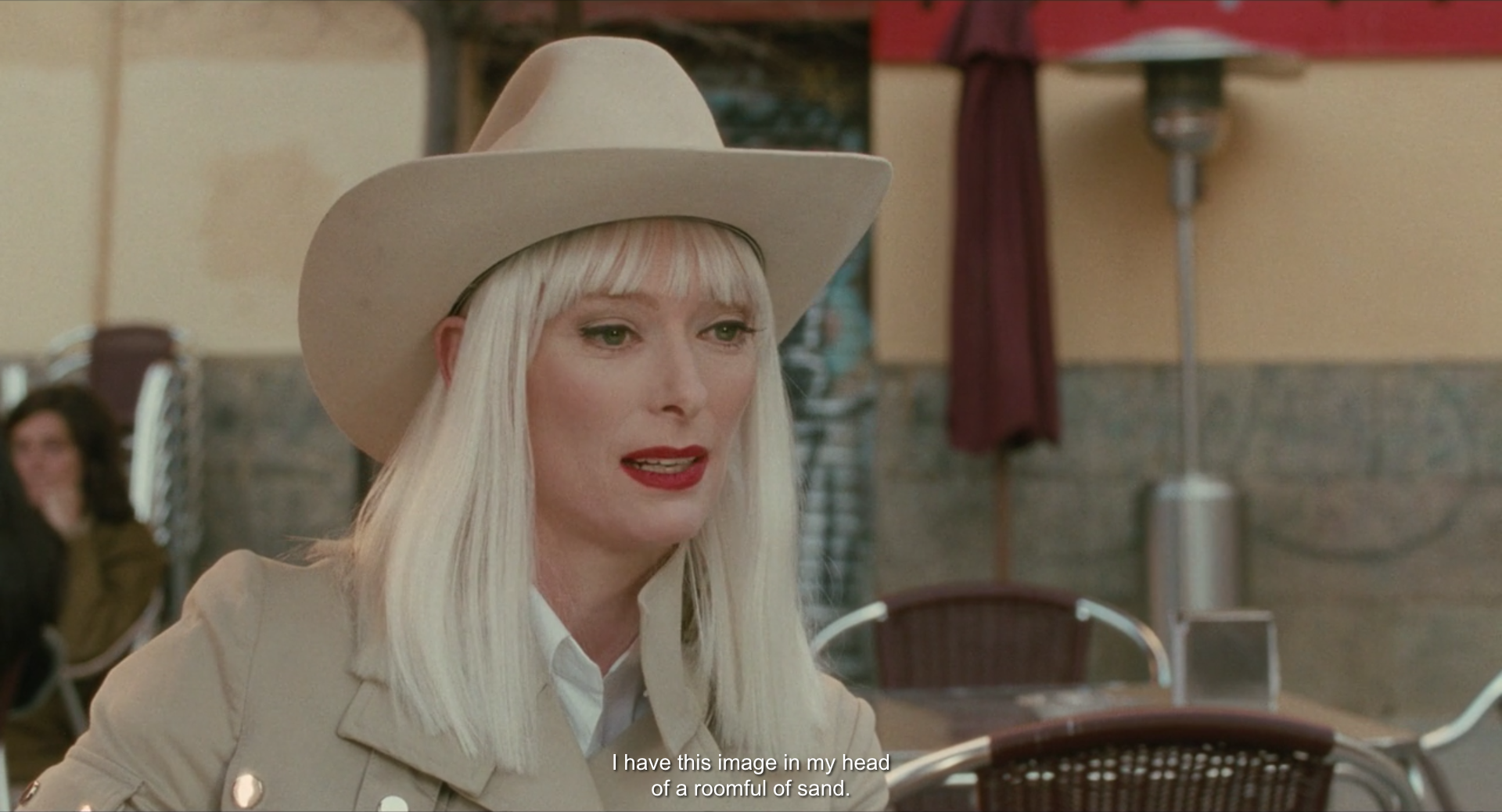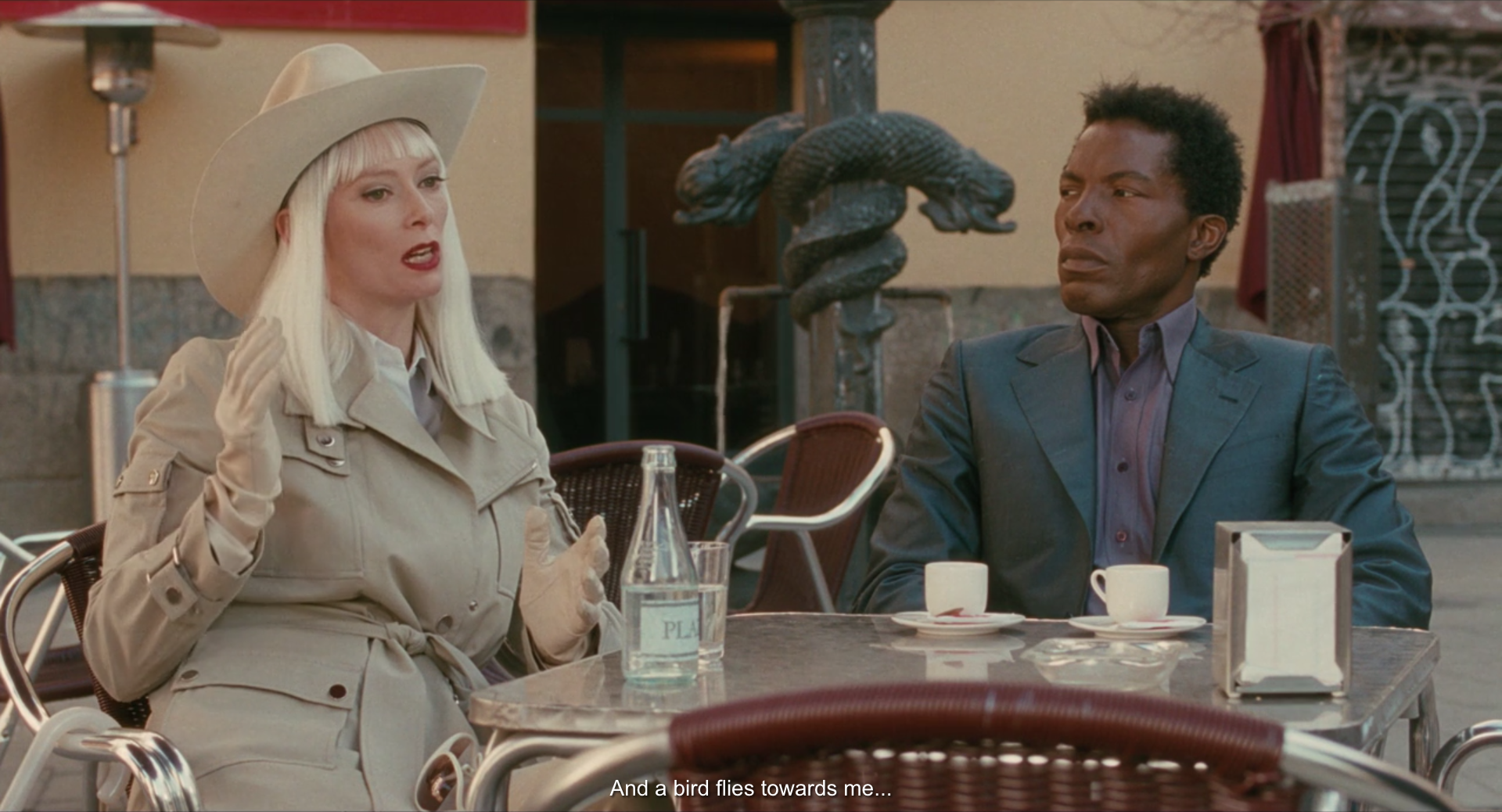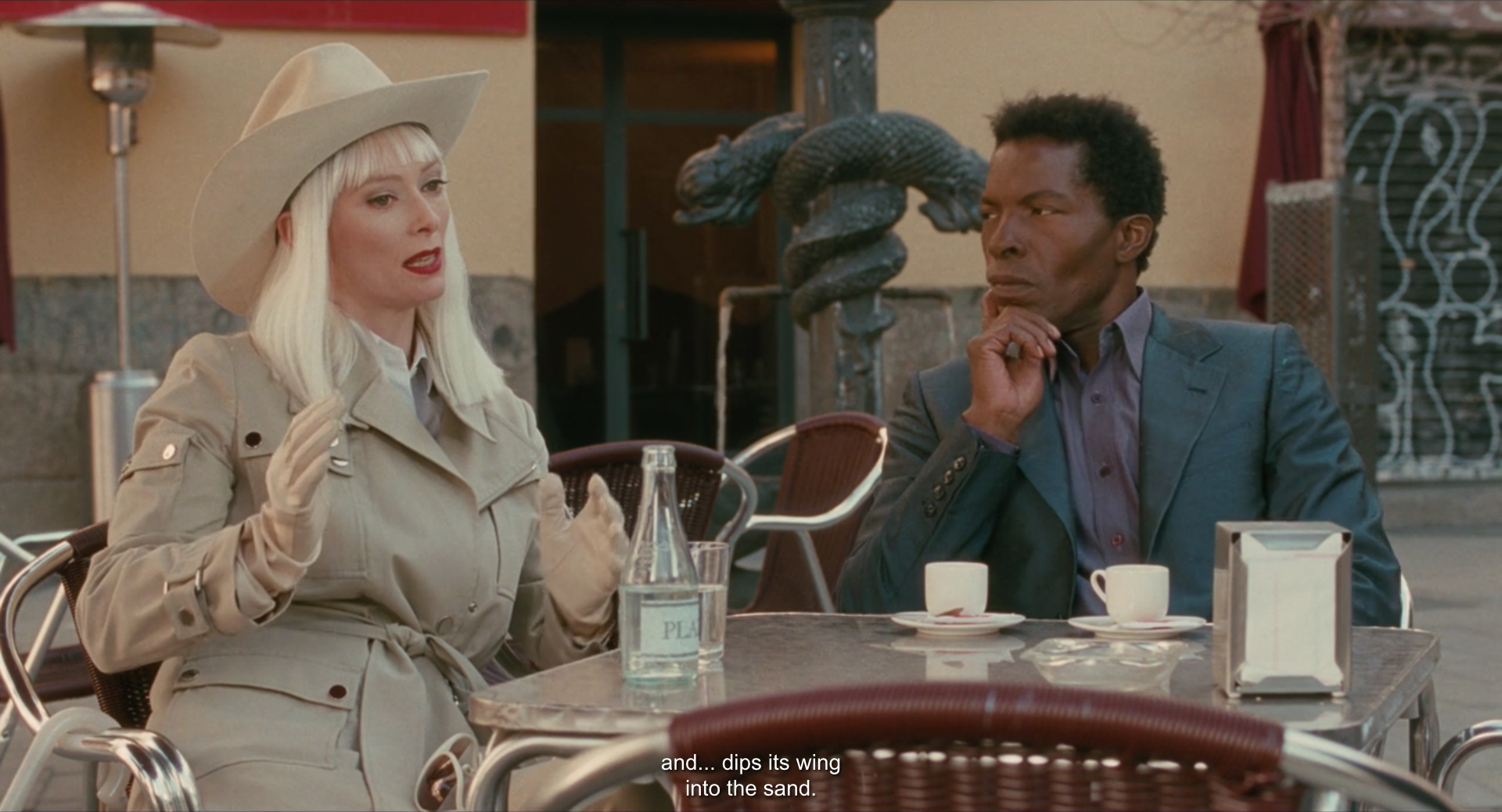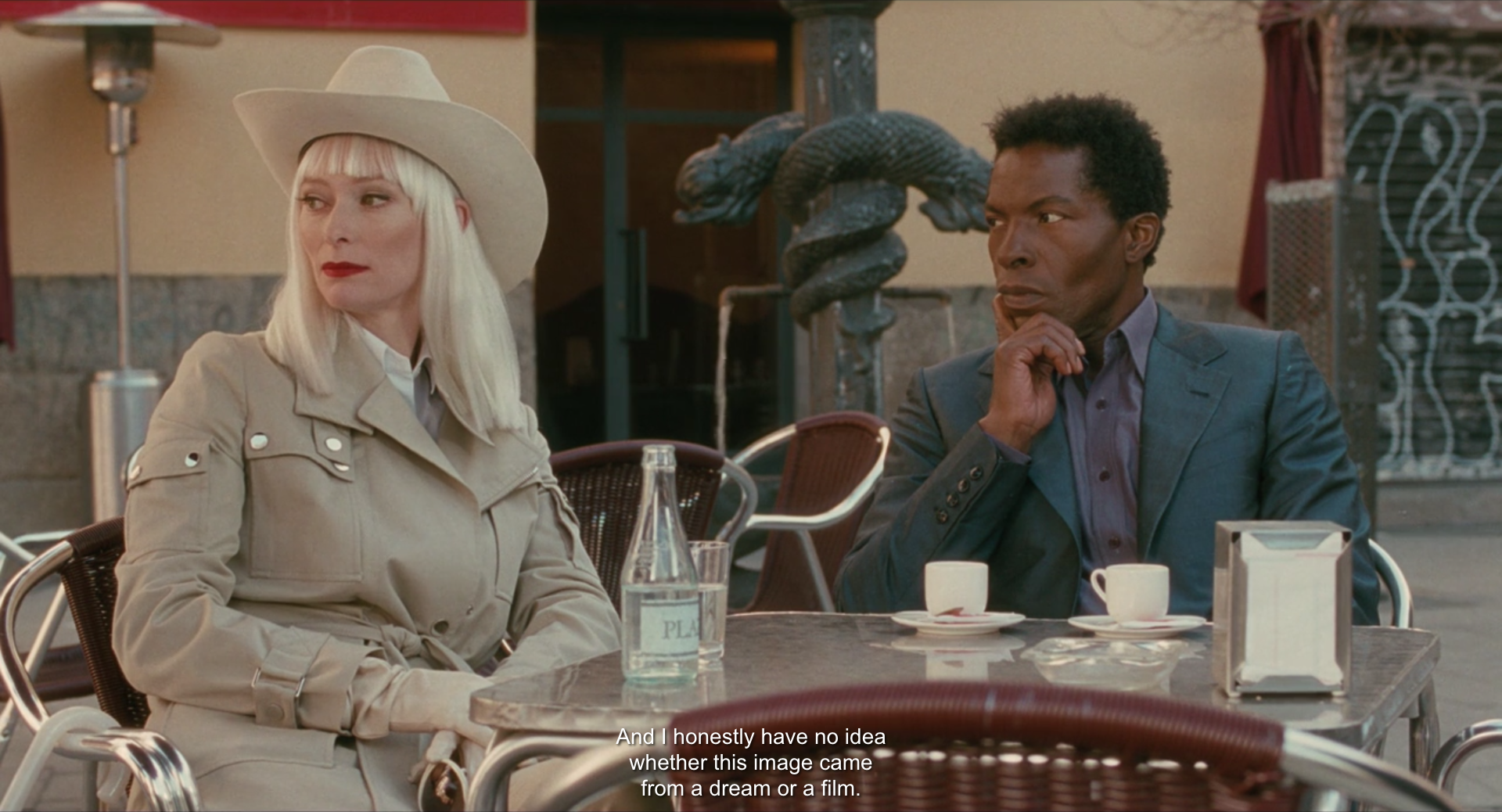The Limits of Control, directed by Jim Jarmusch, screenplay by Jim Jarmusch, cinematography by Christopher Doyle, music by Boris, and edit by Jay Rabinowitz.
In one of his golden rules to filmmaking, Jim Jarmusch shares, “Nothing is original. Steal from anywhere that resonates with inspiration or fuels your imagination. Devour old films, new films, music, books, paintings, photographs, poems, dreams, random conversations, architecture, bridges, street signs, trees, clouds, bodies of water, light and shadows. Select only things to steal from that speak directly to your soul. If you do this, your work (and theft) will be authentic. Authenticity is invaluable; originality is nonexistent. And don’t bother concealing your thievery—celebrate it if you feel like it. In any case, always remember what Jean-Luc Godard said: ‘It’s not where you take things from—it’s where you take them to.’”
This scene from The Limits of Control perfectly exemplifies Jarmusch’s insight on authenticity versus originality in art. Rather than copying a scene from Andrei Tarkovsky’s Stalker, he obliquely touches upon it through the poetic use of dialogue. Many greats artists have shared similar views to Jarmusch’s golden rule of taking the inspiring and transforming it to something uniquely yours. Poet T.S. Eliot wrote, “Immature poets imitate; mature poets steal; bad poets deface what they take, and good poets make it into something better, or at least something different. The good poet welds his theft into a whole of feeling which is unique, utterly different from that from which it was torn; the bad poet throws it into something which has no cohesion. A good poet will usually borrow from authors remote in time, or alien in language, or diverse in interest.” Over time, we find artists echoing Eliot’s words, from Igor Stravinsky’s “Lesser artists borrow; great artists steal,” to Pablo Picasso’s “Good artists copy; great artists steal,” to Jim Jarmusch’s Golden Rules to Filmmaking. Nevertheless, the essence of the message remains the same. What resonates with inspiration, absorb it. What fuels your imagination, take in. Nourish your creativity, and cultivate your unique artistic voice.
